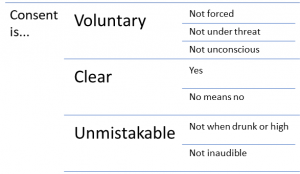| Portfolio Keyphrase: Sexual Abuse of Children
Tags: Abuse, Violence, Crime, Children, Explainer |
[Trigger Warning: The following content contains information on sexual and physical violence which some readers may find disturbing.]
Indian law classifies types of child sexual abuse into different types of crimes, regardless of the child’s gender . Given below are some of the punishable crimes:
- Any non-physical sexual behaviour through gestures, speech, and visuals. For example, gesturing to a child’s private parts or showing naked pictures(( Section 11, The Protection of Children from Sexual Offences Act, 2012.))
- Any act related to child pornography, including its creation, distribution, transmission, publication, etc.(( Section 13, The Protection of Children from Sexual Offences Act, 2012.))
- Administering any drug, hormone or any chemical substance to a child so that the child attains early sexual maturity.(( Section 9(v), The Protection of Children from Sexual Offences Act, 2012; Protection of Children from Sexual Offences (Amendment) Act, 2019.))
- Touching a child in a sexually inappropriate way. For example, touching the private parts of a child.(( Section 7, The Protection of Children from Sexual Offences Act, 2012; Section 9, The Protection of Children from Sexual Offences Act, 2012.))
- Sexually abusing a child through penetration – either with a penis or any other object.(( Section 3, The Protection of Children from Sexual Offences Act, 2012; Section 5, The Protection of Children from Sexual Offences Act, 2012.))
Attempt of sexual abuse
If a person tries to commit(( Section 18, The Protection of Children from Sexual Offences Act, 2012.)) any sexual crime against a child, this is also a crime. It does not matter if the offender fails to actually commit the crime , the attempt itself will hold them liable.
Further, the law also makes a distinction based on the person committing the offence. For example, if any sexual abuse done by a person in a position of trust or authority to the child like a teacher or police officer, the punishment is higher.(( Section 5, The Protection of Children from Sexual Offences Act, 2012; Section 9, The Protection of Children from Sexual Offences Act, 2012.)) The law defines these kinds of abuse as “aggravated” to highlight the fiduciary relationship between the harasser and the child. Read more in our explainer here.
